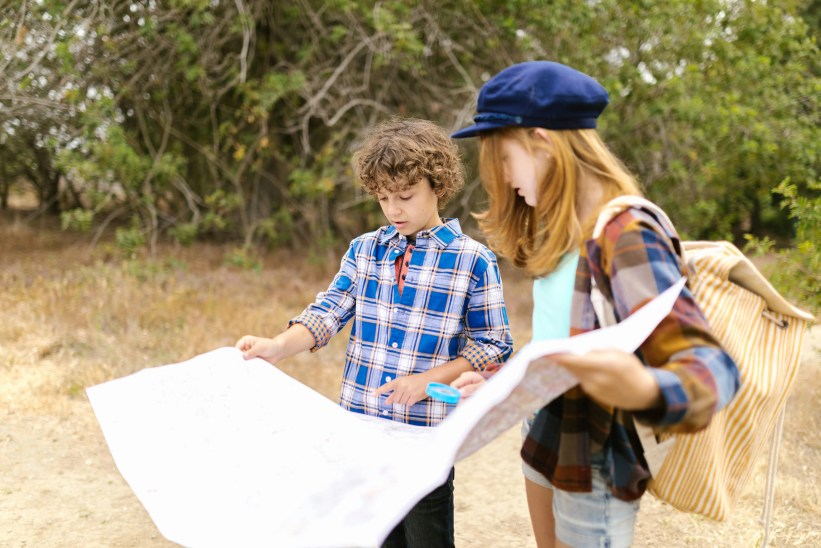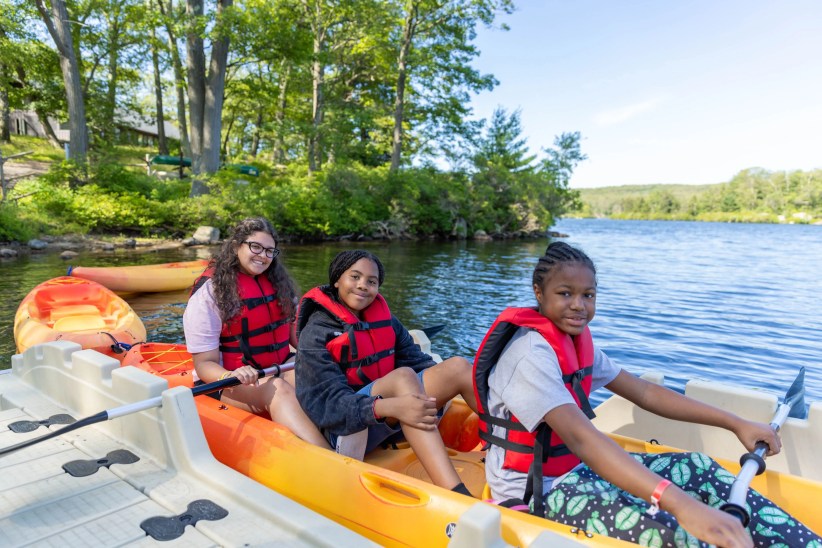
You’ve made the decision to send your child to camp, but what should you be looking for in a camp program? There are many options and many considerations, but finding a camp that’s a good match for your child is worth all the research. Here are some key issues to focus on:
Mission And Philosophy: When checking out a camp, look beyond the pretty pictures to consider the camp’s mission statement and philosophy to make sure they’re in sync with your family’s values. If the camp’s website doesn’t fully address these matters, ask the camp director about them, with a mind toward finding out the type of child who’s a successful participant in their program. “Each camp has its own philosophy and the camp you select should be consistent with your own parenting style,” says Doug Volan, owner and Director of Mount Tom Day Camp in New Rochelle, NY. “For example, is the camp highly competitive or is the focus on personal best? Does the camp concentrate on building life skills along with providing fun? Is there a focus on values such as compassion and integrity?” Questions like these will give families a better understanding of the camp’s goals and culture.
General Or Specialty: Beyond the camp’s overriding philosophy and goals for its campers, it’s helpful to think about a more tangible aspect: Are you looking for a traditional, well-rounded experience or a more specialized program for your child? Think about what activities are must-haves for your child, then make sure the camp offers these programs. Ask how long each activity lasts and how many electives children have in their schedule. Finally, keep in mind that most specialty camps weave in a lot of traditional activities as well—so for those interested in a focus on certain activities, the question really comes down to what kind of balance you’re looking for.
Camp Director: Find out about the camp director’s background and whether he or she is a year-round camp professional or a seasonal employee. “Year-round camp professionals spend all their time making camp the best possible experience for children,” says Volan. “They realize camp is about more than just recreation, it’s about youth development as well.” While this is true, we wouldn’t automatically dismiss the strengths and abilities of a director who might be, for example, a teacher during the off-season (while the year-round administration is tended to by the camp owner). That’s why it’s always worth speaking with the camp director to learn about the camp and get a feel for his or her personality. Directors know these kinds of conversations are part of the process, and the good ones welcome the discussions because they want a good match too. Generally, you can connect with the camp director through phone calls, written correspondence, and in-office visits, but some camp directors will also visit you at your home or meet you on a camp tour. Ultimately, follow your instincts. If you don’t really care for the leader, then the camp is probably not right for your child. You must feel comfortable entrusting your child’s care to this person.

Your Child’s Involvement: Make sure your child takes part in the process of choosing a camp. Liza Wittenberg, Director of Berkshire Soccer Academy for Girls, a specialty soccer camp set in a traditional camp environment in Otis, MA, says, “Allowing your child to have a voice in searching for and selecting camps is extremely important. Parents should have a conversation with their kids about what they hope to get out of [the experience].” Search camps online with your child and tour camps together. The more involved children are in the process, the more ownership they feel, which will helps ease concerns about camp and increase the odds of a truly good match.
Safety Procedures: Reputable camps—and certainly ones that are part of the American Camp Association—have very high standards for camper safety. You might be impressed with what they have to say about medical personnel on property, emergency plans, staff screening procedures, and instructor qualifications.
Sensitivity To Camper Needs: If your child has a special requirement, whether it’s in regard to food allergies or medical needs or behavioral challenges like ADD, ask how the camp approaches these situations. Parents need to be honest and upfront about their child’s special needs to be sure that the camp has not only the ability but also the desire to handle them. Don’t worry about losing an opportunity for your child; if a camp seems reluctant to accommodate, better to go somewhere that welcomes and understands children like yours.
Enrollment Options: Ask about the length of the program and how much flexibility there is in the schedule. For day camp, ask about the length of the day, whether there’s before and after care, and if transportation is provided. These types of logistical considerations will help narrow down your search by which camps will fit your family’s daily, weekly, and seasonal schedules.
Staff: Families should ask about who will be caring for their child. Inquire about the age of the staff, their experience, pre-season and ongoing staff trainings, background checks, the interview process, camper-to-staff ratios, and supervision in cabins and various activities. “An important factor in developing trust in a camp program is for parents to understand how staff members are selected and trained,” says Wittenberg. “Parents should be looking for camps that employ rigorous interview processes, including background checks and professional references.” At a minimum, camp staff should be trained in safety regulations, emergency procedures, communication, behavior management techniques, appropriate staff and camper behavior, and specific procedures for supervision. Additionally, look for camps with large numbers of alumni on staff—one great barometer of a camp’s popularity is if many of its current counselors were once campers there themselves.
Day Or Overnight: The big question. When deciding between day and sleepaway camp, parents should consider a child’s age and maturity, that child’s overnight experiences to date, and whether they’ve been pleasant and successful in such situations. If you’re leaning towards sleepaway, your child should be independent enough to go away for an extended period of time with the ability to take care of themselves to some degree, including showering, getting dressed, and brushing his or her teeth without supervision. It boils down to this: Does the child think he or she is ready, and does he or she want to go?
Outside Review: Make sure the camp is inspected by the local Department of Health and find out if the program is a member of the American Camp Association (ACA), which is the only camp accreditation program in the country, based upon 300 health, safety, and program standards. The ACA goes well beyond what is required by departments of health and addresses specific areas of programming, personnel, health care, emergency response, management practices, and youth development. Of course, there are great camps that choose not to participate in the ACA, but it’s a good idea to ask them why and find out how they maintain their standards.
Need assistance in finding a camp? For starters, families can contact the American Camp Association, New York and New Jersey’s Camper Placement Specialist Renee Flax for free, one-on-one advice. She can be reached at 212.391.5208 or Renee@aca-nynj.org. Visit searchforacamp.org to search accredited summer camps, then check out therightcamp.com and www.newyorkfamily.com for recommendations, decision-making tips, and other insights.




















